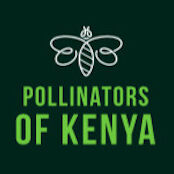The Beetles That Keep our Crops Thriving: A Look at These Essential Pollinators
Pollinators are essential for the survival of many plant species, and bees are often considered the most important pollinators. However, there are other insects that also play a crucial role in pollination, such as beetles. In Kenya, beetles are among the most diverse and abundant groups of pollinators, and they play an important role in maintaining the health and diversity of the country’s ecosystems. This article explores the fascinating world of beetles as pollinators in Kenya, their unique characteristics, and their role in the ecosystem.
The Importance of Beetles as Pollinators in Kenya
Beetles are among the most diverse groups of insects, and they play a crucial role in the pollination of many plant species in Kenya. Some of the reasons why beetles are important pollinators in Kenya are:
-
Diversity: Beetles are a diverse group of insects, with over 400,000 species worldwide, and over 5,000 species in Kenya alone. This diversity allows them to pollinate a wide range of plant species.
-
Adaptability: Beetles are adapted to pollinating different types of flowers. They can pollinate flowers with complex shapes, colors, and fragrances that other pollinators, such as bees, cannot reach.
-
Abundance: Beetles are abundant in many ecosystems in Kenya, and they play a crucial role in pollinating plants in areas where other pollinators are scarce.
-
Resilience: Beetles are resistant to many environmental stressors, such as drought and pollution, which can affect other pollinators. This resilience allows them to continue pollinating plants in adverse conditions.
Unique Characteristics of Beetles as Pollinators in Kenya
Beetles have unique characteristics that distinguish them from other pollinators. Some of these characteristics include:
-
Size: Beetles are usually larger than other pollinators, such as bees and butterflies. This size allows them to carry more pollen, making them more efficient pollinators.
-
Mouthparts: Beetles have mandibles that are adapted to chewing and grinding, which allows them to access the nectar and pollen of many plant species that other pollinators cannot reach.
-
Flight: Beetles have a slow and steady flight, which allows them to pollinate flowers without disturbing them. This slow flight also helps them to conserve energy while searching for food.
-
Color: Many species of beetles are brightly colored, which attracts them to flowers with bright colors. This adaptation allows them to pollinate flowers with complex color patterns that other pollinators cannot see.
The Role of Beetles as Pollinators in Kenya
Beetles play a crucial role in maintaining the health and diversity of ecosystems in Kenya. Some of the ways in which they do this include:
-
Maintaining Plant Diversity: Beetles pollinate many plant species, which helps to maintain the diversity of plant species in ecosystems.
-
Supporting Food Chains: Many insectivorous animals, such as birds and reptiles, rely on beetles as a food source. Without beetles, these animals would be unable to survive.
-
Supporting Agriculture: Many crops in Kenya, such as coffee and tea, rely on beetle pollination for their production. Without beetles, these crops would suffer.




